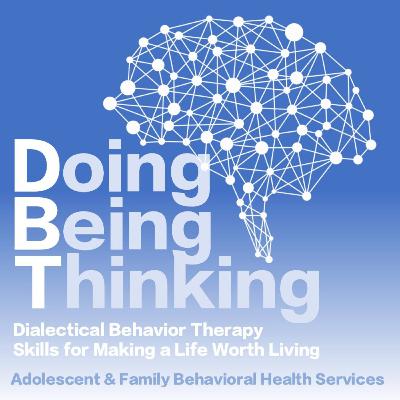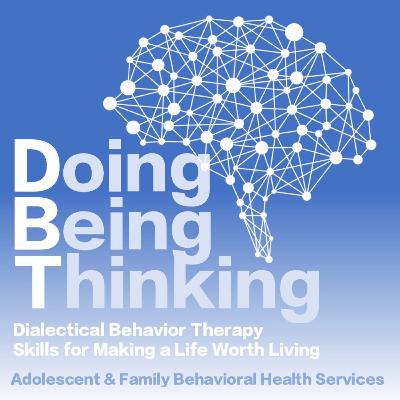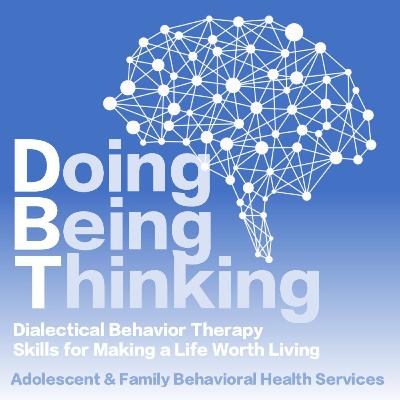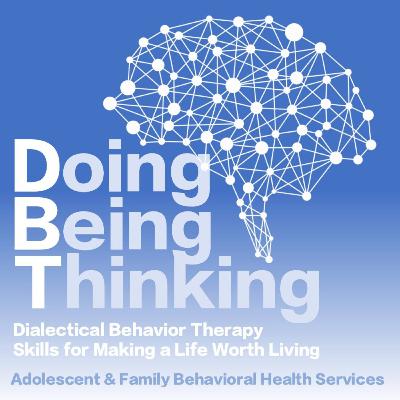Doing Being Thinking: Dialectical Behavior Therapy Skills for Making a Life Worth Living
Subscribed: 14Played: 83
Subscribe
Description
Do you want practical skills to improve your life and change the way you respond to painful events? Do you desire to make a life worth living? Doing Being Thinking is a collection of in-depth conversations between experienced therapists discussing how Dialectical Behavior Therapy (DBT) can help to change ineffective habits to end suffering and improve mental health. Each episode unpacks one practical therapy skill to:
1. Respond to problems more effectively
2. Change responses that “keep us stuck”
3. Improve communication
4. Manage stressful emotions
5. Build positive relationships … or end destructive ones
6. Handle unexpected or painful events more effectively
7. Accept things in order to move forward
8. Develop wisdom and balance
Doing Being Thinking is an educational podcast about Dialectical Behavior Therapy and is not intended as a substitute for therapy. This is a podcast outreach of Adolescent & Family Behavioral Health Services, a private practice offering both in-person and telehealth therapy to children, teens and adults throughout Michigan.
Take our DBT Challenge - https://www.adolescentfamilybhs.com/dbt-challenge
DBT Challenge Newsletter - https://madmimi.com/signups/8a77dbdf370e448d8dbf97d026b681c4/join
AFBHS Website - https://www.adolescentfamilybhs.com/
14 Episodes
Reverse
Comments











